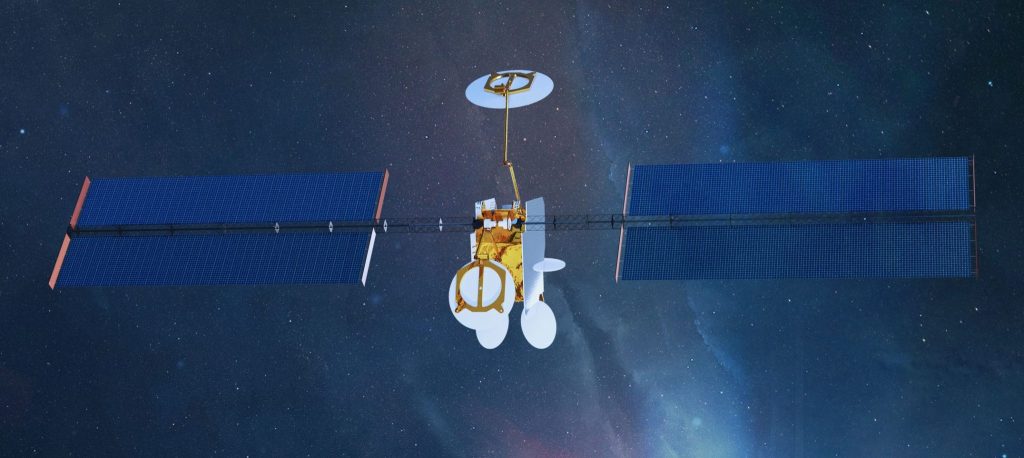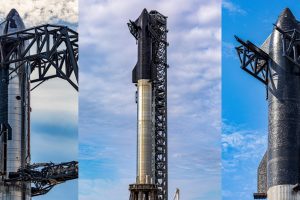SpaceX’s next-generation Starship rocket has secured its first satellite launch contract.
On August 18th, Japanese satellite operator Sky Perfect JSAT announced that it selected SpaceX’s Starship rocket to launch its Superbird-9 satellite to a geostationary transfer orbit (GTO) as early as 2024. It isn’t the first time that SpaceX or another company has floated the possibility of using Starship to launch paying customers’ satellites, but Sky Perfect JSAT appears to have become the first customer to sign a firm contract to do so.

In March 2022, an executive of mobile-friendly internet constellation startup AST SpaceMobile told SpaceNews that it had secured two launch contracts from SpaceX for its first operational BlueBird satellites, but had only firmly selected Falcon 9 for one. The second satellite, that executive noted, could potentially launch on Falcon 9 or Starship. In an August 18th article, SpaceNews clarified that Starship is an official option for AST SpaceMobile’s second BlueBird launch contract, which it must complete before the end of 2024 per the agreement.
In May 2019, SpaceX President and COO Gwynne Shotwell suggested that Starship could be used to launch Turkey’s second domestically-built communications satellite, although her off-hand mention has yet to translate into any official agreement.
In 2021, SpaceX bid Starship to launch NASA’s tiny TROPICS weather satellite constellation – amounting to just ~56 kilograms (~124 lb) – for a price somewhere between $9 million and ~$20 million.
SpaceX already has plans to use Starship to launch much larger Starlink Gen2 satellites, and it has a contract with NASA that should culminate in at least two Starship Moon landings that will require dozens of launches to Earth orbit.
According to an official payload user’s guide released in 2020, SpaceX anticipates that Starship will be able to launch up to 21 tons (~46,000 lb) to geostationary transfer orbit (GTO) without refueling. The rocket’s design has changed considerably since then, boosting its maximum performance to low Earth orbit (LEO) from about 100 tons (~220,000 lb) to 150 tons (~330,000 lb), so Starship’s theoretical performance to GTO may have also improved.
Sky Perfect JSAT did not reveal the expected mass of its new satellite, but other planned satellites using the Airbus OneSat bus Superbird-9 will be built around are expected to way about 3 tons (~6600 lb).





